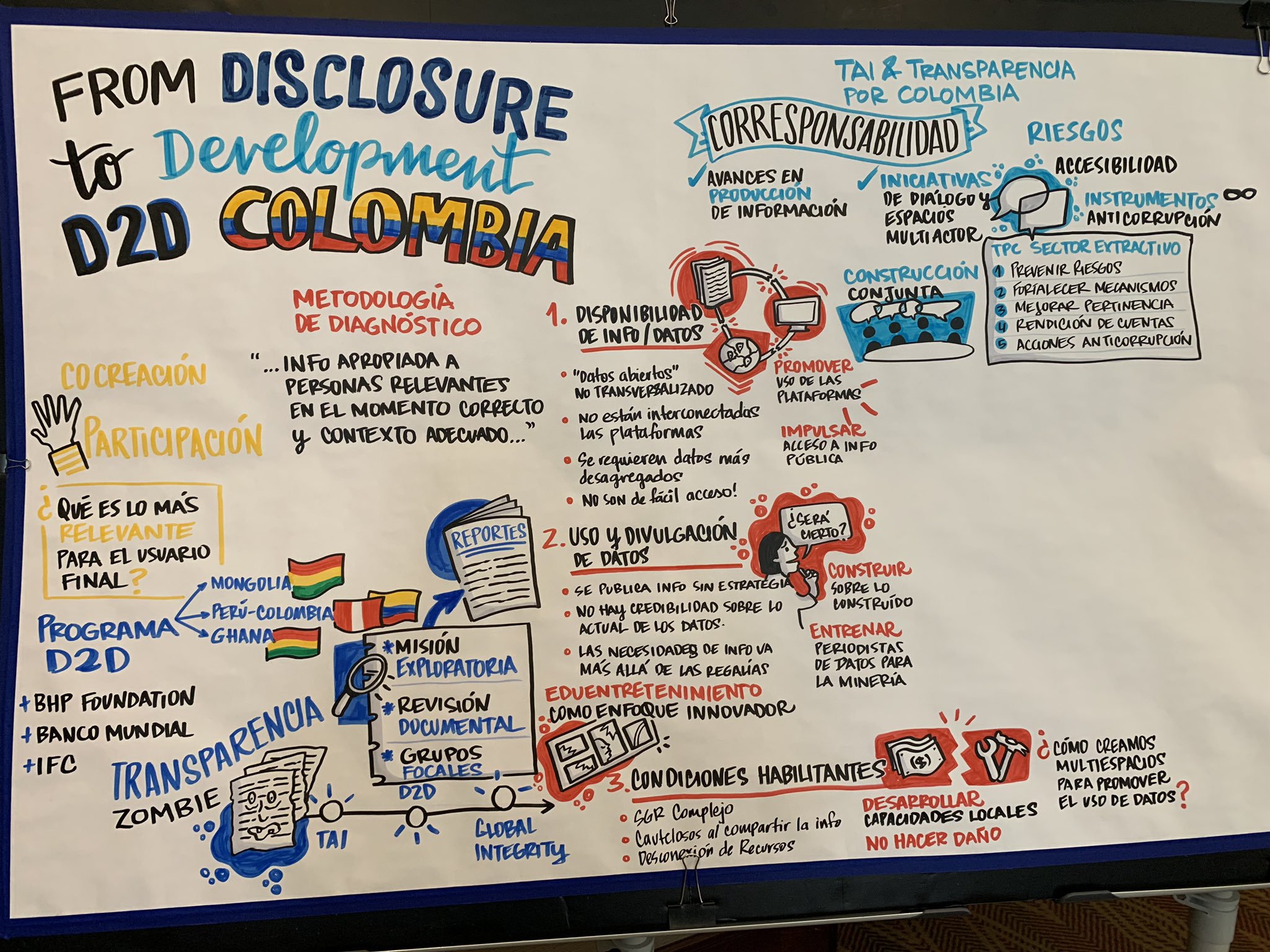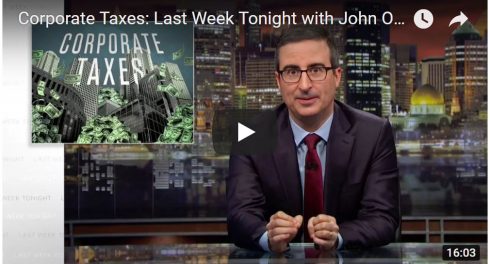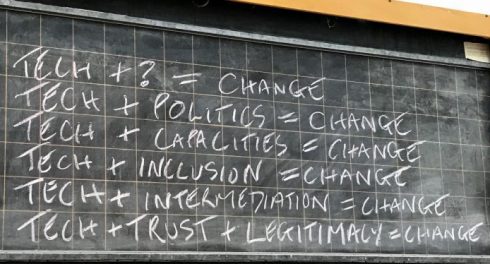Highlights
- A court filing a day keeps the tax man away
- Corruption allegation – Friend or foe?
- System error
- Draw me a story
- A court filing a day keeps the tax man away
- Guarding the septillion
- Hard to be good
- TAI Spotlight: Pledging for increased overhead funding
Sunny Ikhioya suggests Nigerian tax laws are not conducive to enabling a healthy business environment given weak reciprocal service provision, thus lowering taxpayer morale and further eroding the tax base. He calls for government to be accountable for revenues raised. For their part, the average Kenyan taxpayer is likely scratching their head wondering why elites can contest their taxes in a court that hasn’t met in 14 months, leaving the Kenyan Revenue Authority £2.2b in the hole.
Want to learn more on tax morale? Check our Long Read below, don’t forget the World Bank’s research on the topic from May this year and stay tuned for a new OECD report due out tomorrow. The average taxpayer most likely resents those who can route monies offshore to avoid payments, so may be pleasantly surprised that the IMF continues to toughen up on tax havens, noting “hosting an offshore financial center is a lose-lose proposition…”.
ESSENTIAL LISTENING
The Institute of Development (IDS) is celebrating one year of its podcast series –between the lines — about ‘books for a better world’, with a special episode that brings together a range of speakers and wealth of ideas, drawing out some of the key elements needed for progressive change.
Corruption Allegation – Friend or Foe?
On the one hand, we are seeing a trend toward apparent politicization of corruption crackdowns with question marks raised from India to China. On the other, some governments continue to clamp down on journalists who expose possible corruption, often taking advantage of new legislation ostensibly designed to stop misinformation. Benin’s Journalist Ignace Sossou was found guilty of publishing “false news” after he revealed that Benin-born businessman Jean-Luc Tchifteyan allegedly has offshore accounts and shell companies. In Nigeria, publisher Agba Jalingo was arrested and later charged with treason for criticizing a state governor for corruption even as calls grow for the release of another imprisoned journalist, Omoyele Sowore. Singapore’s Prime Minister Lee Hsien Loong threatened the editor of an online publication with libel charges for publishing “false” allegations about the city-state’s founding family. However, in some cases the isolated case becomes the norm. Reporters Without Borders declared Iran the world biggest jailer of female journalists while in Turkey, fifteen journalists were detained in August alone.
Repressive tactics are designed to cow investigators – Freda Ukpoju charts the changing civic space of anti-corruption in Nigeria, drawing on the Say No Campaign experiences across the country to remind us of the important roles citizens play in fighting corruption alongside government (if allowed to). So how to continue to protect space for civic action in increasingly semi-authoritarian settings? Join forces with other CSOs and if needed, adapt from more overtly confrontational stances – so suggests Chris Nkwatsibwe’s drawing on examples from Uganda. More lessons from Guardian Australia’s Dan Stinton as he reminds us that to prevent our democracy from being hacked, we need to be transparent and accountable.
System Error
Corruption Watch point to a marked increase in corruption within the very institution charged with protecting the rights of all South Africans – the police. Meanwhile, the Council of Europe’s Group of States against Corruption (GRECO) notes that even in Denmark’s highly respected police system, there’s still some room for improvement in police anti-corruption policies
Harry G. Broadman thinks prosecuting foreign officials won’t stop businesses offering bribes. He encourages US legislative efforts to make it easier to not only prosecute those firms who pay bribes but those officials who take them. Siphosami Malunga, head of the Open Society Initiative for Southern Africa, gave us more reason to be proactive and not take things at face value as he unmasks the carefully crafted system in Botswana, which was purported to be Africa’s democracy poster child.
What about systemic drivers? Rodney Toh attempts to help us understand why good leaders fall as he analyzed the implication of what he called the “Bathsheba syndrome.”
Global Integrity’s Executive Director, Alan Hudson, shares some of his thoughts on thinking and working politically in the transparency field as he attends “From Politics to Power: Rethinking the politics of development” from September 9 to 11. Thinking politically is one thing, but acting politically? Are we assuming that will lead to the fastest, most direct route to a solution? Westminster Foundation for Democracy’s Graeme Ramshaw suggests we might do better to anticipate a longer and likely more circuitous road towards an end goal. Expect much talk of short and long routes to accountability at the Global Partnership for Social Accountability Forum in a couple of months. Want to know what to expect? Read the latest brief framing themes and topics. Want even more? Dig into the role of social accountability for inclusive governance.
LONG READ
African Tax Administration Paper 11: Perceptions of Value Added Tax Filing and Invoicing Compliance in Ethiopia – based on survey of 652 Ethiopian value added tax (VAT)-registered businesses, this report indicates that the businesses compliance is negatively affected by a cumbersome VAT filing process and weak link between VAT payment and public service delivery.

Photo Credit: Nicolas Penagos via Twitter
Draw me a story
TAI was in Colombia this past week testing findings on barriers to use of extractives data and heard repeated calls for more intuitive and engaging ways to show case information. Open Ownership want to provide inspiration – their new graphing visualization tool may enable easier storytelling to make the case for transparent ownership registries.
Last week, we cited Hewlett Foundation’s Alfonsina Peñaloza’s three suggestions to use open government to further wedge open the door for action on gender. Yet policymakers will want to be careful in how they do so – Kate Bezanson worries that governments making a push on equality issues can find itself vulnerable to criticism. Is it easier to push change under the banner of a multilateral initiative? The OGP experience suggests perhaps so, and the Extractives Industries Transparency Initiative may offer another example as member countries commit to promoting inclusion of gender equality in extractives programs.
Guarding the septillion
Of all the septillion (7,700,000,000,000,000,000,000) gigabytes of data generated daily around the world, companies that collect said data only use about 45% of it – mostly sold for marketing purposes and not always to whom you’d expect. What’s at risk? Exposure of your mental health status judging by Privacy International’s research on practices in the EU. As big tech face ever more regulatory challenges, what might be more preventative? Does Singapore’s recent Personal Data Protection Act offer a good model? Seems there is plenty to learn from the humanitarian sector, too.
Oh, and it’s a little while since we had a blockchain story – you need wait no longer. US Senator Bill Cassidy released a white paper arguing that distributed ledger technology (blockchain) can be used for real-time transparency to prevent trade-based money laundering.
As we campaign for open data, we must remember that to have open data, we must have the data to begin with. Join the Land Portal from September 9-29 on a dialogue highlighting the importance of good and open land ownership data in fighting corruption.
Hard to be good
Senior director at Arabella Advisors, Loren McArthur, explains how philanthropy can help to hold corporations accountable to the public interest. What of donor’s own accountability? Publish What You Fund has added both Saudi Arabia’s King Salman Humanitarian Aid and Relief Centre (KSRelief) and TIKA, the Turkish Cooperation and Coordination Agency in the newly released the 2020 Aid Transparency Index Donor list which examines charitable foundation’s commitment to transparency as a step to accountable giving. The collaborative philanthropic vehicle Co-Impact are trying to set an example with their new handbook, describing their purpose, how they make grants, and what to expect when partnering with them. Pair with a dive into the prominent myths underlying US philanthropy.
.
TAI SPOTLIGHT
Experts on governance, media, technology Join Advisory Group | Luminate
Luminate appoints eleven leaders as members of our Advisory Group to challenge, sharpen, and advance its core strategic questions and assumptions. Look for some new and more familiar names.
Pledging for increased overhead funding
Picking up on last week’s flagging of the overhead cost issue for grantees, four TAI members (Hewlett, Ford, MacArthur, and Open Society Foundations) made public their pledge to do more to help charities pay overhead. They are on a mission with Packard Foundation to encourage all other grant makers to join them to help cover essential operating costs. Good news!
Calls:
APTI call for Research Proposals on Property Taxation – September 15
Call for Policy Relevant Research Proposals on Local Democracy – September 20
Reagan-Fascell Democracy Fellows Program – October 1
Craig Newmark Cyber Journalism Fellowship – November 1
Calendar:
ESID: From Politics to Power? Rethinking the politics of development – September 9-11 (Manchester, UK)
Policy Dialogue: Money Laundering and its Relationship with Corruption Investigations – September 12, 2019 (Washington DC, United States)
Land Portal: Open Land Data in the Fight Against Corruption – September 9 – 29
IDEAS 2019 Global Assembly and Third International Conference on Evaluating Environment and Development – September 30 – October 4, 2019 (Prague, Czech Republic)
Liberating Structures Festival – October 7 – 11, 2019 (The Hague, Netherlands)
Global Symposium (COPGS) on Citizenship, Governance, and Accountability in Health – October 15-18, 2019 (New Delhi, India)
What Works Global Summit 2019: Building Evidence – October 16 – 18, 2019 (Mexico City, Mexico)
7th SAMEA Conference: Shaping M&E for a sustainable future – October 21 – 25, 2019 (Gauteng, South Africa)
Global Perspectives 2019 – October 29 – November 1, 2019 (Addis Ababa, Ethiopia)
Global Partnership for Social Accountability – Global Partners Forum 2019 Washington, DC November 19-21, 2019 https://www.thegpsa.org/forum/global-partners-forum-2019
ODI Summit 2019 – November 12 – 2019 (London, United Kingdom)
The Story Conference – November 27 – 29, 2019 (Melbourne, Australia)


